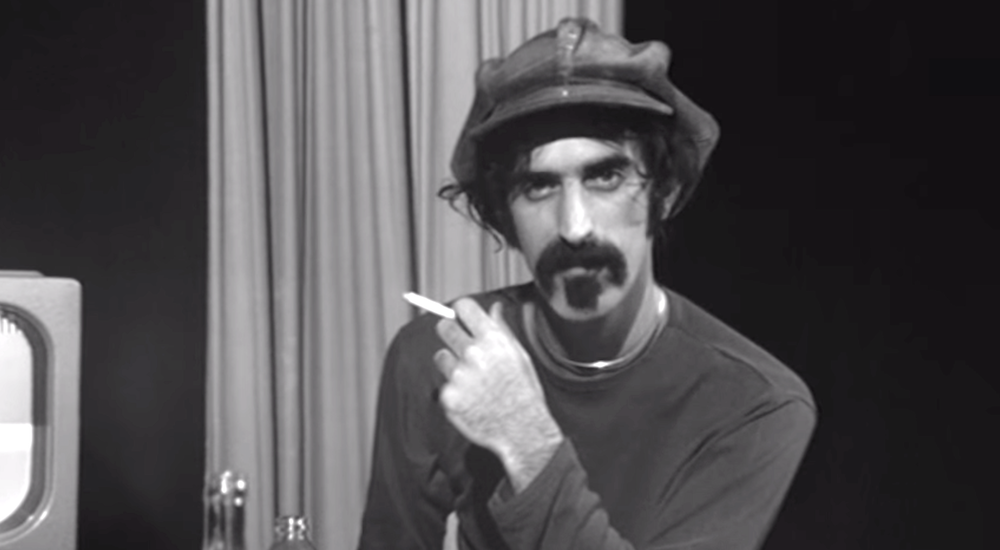Score: B+
Director: Thorsten Shutte
Cast: Frank Zappa, Steve Allen
Running Time: 93 min
Rated: R
Documentaries about musicians often come with a hefty dose of reverence, especially when you can consider the entire life and career of a single musician. Much the same happens in Eat That Question: Frank Zappa in His Own Words. However, you come to understand that Zappa deserves such reverence as you watch decades of his career told solely through archival footage of interviews and performances. Zappa, with his memorable nose, moustache, and shaggy hair, is truly a legend.
Without title cards or talking heads the narrative is guided by Zappa himself as we see him go from a slightly strange, clean cut kid playing a bicycle as an instrument on The Steve Allen Show to the outspoken and avant-garde musician/composer we know today. It all lends a sort of flow to the film and the audience is left to create their own ideas and judgments on the man without input from friends and loved ones to fill in the gaps.
The film keeps itself strictly to Zappa’s professional life. While it does feature him mentioning that he has a wife and four kids, they’re never seen on screen. Focusing squarely on his musicianship is understandable but also feels like you only know one-half of a person. As Zappa himself states, “I don’t think anybody has ever seen the real Frank Zappa because being interviewed is one of the most abnormal things that you can do to somebody else.”
Sticking primarily to chronology, director Thorsten Shutte has given a strong overview of Zappa in Eat That Question. We never really get an in-depth look at his songs, but the filmmaker seems more preoccupied with conveying Zappa’s persona and talent over his actual music. It’s precarious to assume that your audience will just know Zappa’s music (I personally didn’t), but it also piques curiosity for those to leave the film and immediately hit up Spotify to check out Zappa’s long and productive musical career.
Perhaps the most striking aspect of Eat That Question is the emphasis on Zappa’s intelligence and his commentary on the music industry. In a time when musicians seem more than happy to join the music machine and participate in its many cogs of interviews, album promotions, and surface-level melodies, it was impressive to see a man with the same message over many decades. His willingness to fly in the face of the industry sets him clearly apart.
Eat That Question serves as a great introduction to those unfamiliar with Frank Zappa. It also serves as a fitting homage to those already enamored with the musician. By keeping strictly to Zappa’s own words, Shutte has edited together a simultaneous tribute and call to action.

